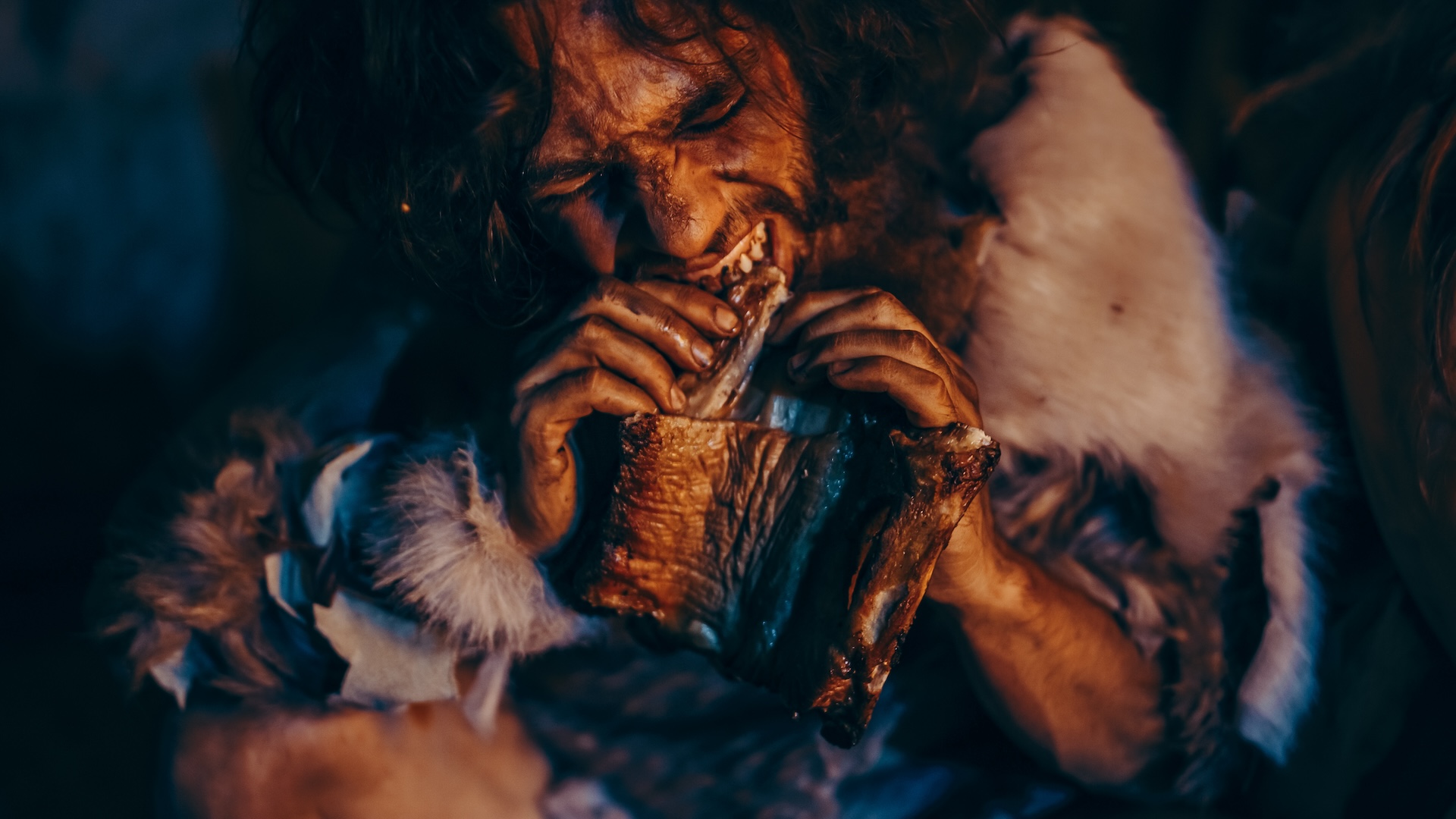
Cooking is important — in fact, some researchers believe it's what allowed our human ancestors to unlock the extra calories needed to grow larger brains. So when was cooking invented?
The timing is uncertain, but evidence suggests people were cooking food at least 50,000 years ago and as early as 2 million years ago. This evidence comes from two fields: archaeology and biology.
One piece of archaeological evidence for cooking is cooked starch grains found in dental calculus, or hardened dental plaque. "People can find it in teeth that are 50,000 years old," said Richard Wrangham, a retired professor of biological anthropology at Harvard University and the author of "Catching Fire: How Cooking Made Us Human" (Basic Books, 2009).
But earlier than that, the evidence is less clear. Generally, scientists look for evidence that people were controlling fire. But evidence of controlled fire isn't necessarily evidence of cooking; — people could have used that fire for heat or to make tools, for example.
"There's evidence of fire all the way through the archaeological record," said Bethan Linscott, an archaeological geochemist at the University of Oxford. "But the problem is distinguishing whether it was controlled fire or fire that was scavenged — you have a wildfire moving through the landscape and you have hominins who are able to pick up a smoldering twig and take advantage of that in order to maybe process tools or cook."
Related: When did humans discover how to use fire?
"One of the key things when you're looking for evidence of fire control is an actual combustion structure — so maybe having stones arranged in a circle and then some ash in the middle, maybe some phytoliths [silica structures left by long-dead plants] and burnt artifacts and things," Linscott said.
Researchers have found these artifacts in many places that predate Homo sapiens, meaning that earlier hominins used fire, too. A team investigating in Qesem Cave in Israel found evidence of a 300,000-year-old hearth near butchered animal remains, and a cave site in Suffolk, England, has a 400,000-year-old hearth containing burnt bone and flint from toolmaking.
Even further back, ash in Wonderwerk Cave in South Africa led scientists to suspect cooking was even happening 1 million years ago. "[The cave] is so deep, about 30 meters [100 feet] deep, that it couldn't possibly have been a natural process producing this ash a million years ago," Wrangham said.
There's even evidence of controlled fire in Kenya 1.6 million years ago.
While working at a site called Gesher Benot Ya'aqov in Israel, researchers found more convincing evidence of cooking from 780,000 years ago: There were not only circles of stones to indicate a hearth, but also fish bones that showed evidence of being heated.
The biological evidence of when cooking began exists in the way the human body has evolved. "We are as a species different from every other species on Earth because we are biologically adapted to eating cooked food," Wrangham said. In a study of people on raw-food diets, for example, researchers found that participants tended to lose weight and a third of the women stopped menstruating.
"So then the question is, well, when did this happen?" Wrangham said.
It may have been even before modern humans emerged, according to Wrangham.
Homo erectus was the first hominin to have less primate-like and more human-like body proportions, and some of those features suggest they may have been the first to cook food.
One major difference between humans and our primate cousins is the size of our guts. Because cooking requires us to do less digesting, our guts are smaller than theirs.
"Our large intestine, our colon, the last bit of the gut, is about two-thirds of the size that it would be if we were a chimpanzee, a bonobo or a gorilla," Wrangham said. "And so that means that we have relatively flat stomachs instead of the bulging ones, particularly after an ape has had a good meal."
Related: Why haven't all primates evolved into humans?
To accommodate those larger guts, nonhuman primates have wide pelvises and flared ribs. Our human ancestors lost these features about 2 million years ago, Wrangham said.
"The other thing that happened then was the largest drop in the size of the chewing teeth in the history of human evolution," he said. "And so again, this very much fits the idea that all of a sudden something's changed in the diet. Specifically, the diet has become easier to chew, it's softer."
This happened around the same time — 1.8 million years ago.
"And so the big story here … is that cooking began about 1.9 million years ago with the origin of the species that most looks like us in human evolution, Homo erectus," Wrangham said. "And I think that you can provide a very convincing story saying that cooking and control of fire was responsible for the evolution of Homo erectus."
But without evidence of controlled fire use from that long ago, the idea that Homo erectus was the first cook is still up for debate.
"There's a lot of people still working on it, and I imagine there will be for a long time, and I don't know if they'll ever be able to pinpoint exactly when," Linscott said.







